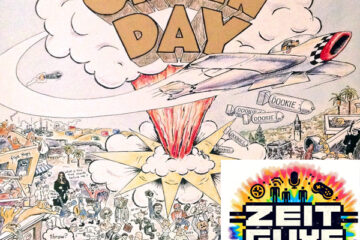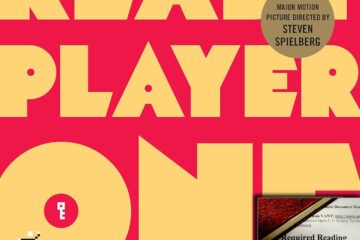The narrative is powerful, describing the life under his Royal Navy Officer master, the process of being sold and the purchasing of his own freedom. The part the students read describes the dreaded Middle Passage, the trade route across the middle Atlantic between Africa and the Caribbean which was the most deadly for the slaves. He further compares European slavery to African, his first reactions to oceanic ships, whites, and Christianity. Sample we give is below: The Interesting Narrative of Olaudah Equiano by Olaudah Equiano Excerpt
The Interesting Narrative of Olaudah Equiano by Haddon Buschmann
The Interesting Narrative of Olaudah Equiano is the autobiography of former slave, Olaudah Equiano. He wrote about his experience of getting kidnapped for slavery, taken to another country, being worked to the bone, and eventually buying his freedom. At a young age, slave trader captured him and sold hom to West Indies. He eventually got shipped to the Americas, and the repulsive environment scarred him and other slaves for the rest of their lives. The Europeans treated the slaves as property, and the slaves felt as if they were just empty space that had no control of their actions. Equiano moved to England after gaining freedom and wrote this book to speak against slavery using his subjective view of the situation.
Although the European slave traders justified their actions by saying black people were wild and inhuman, Equiano reverses this by saying that the white people acted “in so savage a manner.” The “intolerably loathsome” conditions that Equiano was put through pushed him to want the situation to “put an end to [his] miseries.” He was ignorant to all of the horrors that would fall upon him because he had never seen this kind of slavery before. Equiano mentioned that he would rather have his “former slavery in preference to [his] current situation.” Many slaves before this had already tried to kill themselves because they would also rather die than keep going with these conditions.
Being from Africa, Equiano had never seen a white person or any technology from the European’s. He repeatedly expresses his fear and terror in his situation to express the emotions that all the Africans would feel when being taken from their family and homes. He writes in a way that the Europeans will fully understand how horrible they treated him and the true emotions he felt while in this position. He even uses Christianity against them by addressing them as, “O, ye nominal Christians!” He claims that they went against the word of God so that the white people would understand the full extent of the horrors Equiano experienced.
Olaudah Equiano Portfolio by Sophia Gamboa
“The Interesting Narrative of the Life of Olaudah Equiano” is an autobiography about Equiano’s life and the miseries he survived as a slave. Olaudah Equiano was kidnapped when he was only 11 years old alongside his sister. He was sold into slavery and had to do hard labor. He recounts his experience on the slave boat and remembers every small, horrific detail, and continues to lose hope during his journey.
One of Equiano’s first thoughts, as he becomes a slave for a family in a cordial country, was, “I therefore determined to seize the first opportunity of making my escape.” He was persistent in finding an escape to prevent him from living a life of suffering. He narrates his attempt at escaping, but fails as he admits, “that any attempt to return home would be hopeless.” Equiano manages to have one good thing happen to him after all his sorrow. He reconnects with his sister and embraces her. They were in each other’s company overnight and Equiano became overjoyed at the thought of having her back, but this moment doesn’t last. Equiano’s sister is taken away from him once again and he was back to being alone.
Olaudah Equiano wished to die multiple times so he would not have to continue living a life of anguish. He confesses, “I now wished for the last friend, death, to relieve me.” This statement was Equiano stating that he had “no way out” and had to live with being a slave torn away from his country and family.
Olaudah Equiano writes a book about his journey as a slave. He tells of his experiences and how he and other slaves were treated. Equiano speaks of the family he worked for and reflects on the dark thoughts and terrible treatment he endured while on the slave boat. His final message was reminding us of how he was kidnapped at the young age of 11 and remarks that being separated from one’s family was the new refinement of cruelty during this time period.
Olaudah Equiano by Kate Hunsberger
A young boy named Olaudah Equiano undergoes a life altering experience as he endures being kidnapped by slave traders and a perilous journey on a slave ship. Equiano lives to write a diary of his experience that sheds light on his trauma. He travels to the coast of Africa and endures a slave ship to the West Indies to be sold. The heart wrenching narrative of Olaudah Equiano puts into words the horrors of the middle passage and the physical and mental effects that come with it.
The first journey Equiano undergoes is the journey to the slave ship. After his kidnapping, he cries to the slave traders which “had no other effect then to tie [him] faster,” Equiano describes the first few days of his journey. To begin, Equiano parts from his sister as he says, “we were soon deprived of even the small comfort of weeping together.” The slave traders cut off any emotional ties the slaves held and any slither of freedom they could obtain. They do this because the slave traders want the money and need to keep the slaves alive with just below the necessary amount of energy.
In the narrative, Equiano describes the feeling on the slave ship as “a world of bad spirits.” The initial terror drives the narrative because Equiano fears the worst and in turn, he experiences this. Throughout the narrative Equiano constantly repeats the idea of choosing death over the torture of the ship. This constant repetitiveness puts into perspective the brutality of the ship and those aboard. He explains his envy for “the freedom they enjoyed” because throughout the narrative he never feels a sense of freedom even if the decision is to end his own life.
The narrative shows the Europeans dehumanizing the slaves by objectifying them and thinking of them as a mere piece of property. For example, the narrative describes the slaves as “confined together”. The shipment of more slaves increases the amount of money the traders obtain without any thought of the conditions on the ship. Equiano explains the way the slave traders never see the slaves as people. He does this in ways such as describing the “intolerably loathsome” stench of the slave’s cabin. Finally, after the hell like ship voyage, Equiano points out the irony of the so called Christians that captured him. He does this by restating the golden rule, “Do unto all men as you would men should do unto you.” The hypocrisy of the Christians is blatantly obvious through their cruel and brutal actions.
Equiano and the Middle Passage by Isabella Grigsby
As the colonies began to prosper, their need for laborers increased. Colonial profit margins were single-handedly made with agriculture and trade. To maintain steady income, plantation owners needed more hands in the fields to harvest. Slavery was well introduced by this time, but the level in which it took place was not enough for the colonists. To make up for this lack of workers, colonists send large boats to Africa in order to obtain more slaves. While on the way to America the conditions on the ship were simply inhumane. Equiano happens to be one of the slaves who endured this journey and documented his story. He describes the air as filled with such a “loathsome stench” that it clogged his respiratory system and caused great illness. The slaves were chained and packed into the ship like sardines, shoulder to shoulder. There was no room to turn around, not enough food, and the air hung due to the weight of the odor.
The English who were in charge of the ships and sailing, spared no mercy towards the slaves. They found entertainment in whipping the slaves, beating them, and using the women for their own personal pleasures. The entire process was truly dehumanizing and a testament to those who call themselves Christians. Equiano touches on this fact in his retelling asking how one could claim to be Christian and preach God’s word and then turn around and commit the most horrible acts of racism and crime.
Another factor was the immediate culture shock. The slaves had never seen a white man, a gun, maritime technology, let alone the ocean. They were convinced the English were capable of magic and sorcery because these ideas were so foreign to them. When one combines all of these aspects and takes their perspective, it is an inconceivable amount of hardships and confusion that ultimately lead people to the breaking point.


